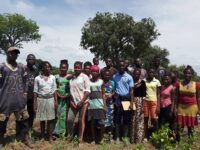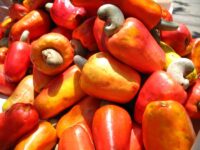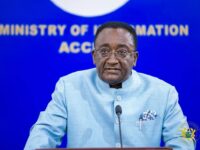 The “Planting for food and jobs” campaign which was launched by the president, Nana Addo Dankwa Akufo-Addo last week may not succeed if small holder farmers are not part of it, Prof Saa Dittoh, a lecturer at the Department of Climate Change and Food Security at the University for Development Studies (UDS) has said.
The “Planting for food and jobs” campaign which was launched by the president, Nana Addo Dankwa Akufo-Addo last week may not succeed if small holder farmers are not part of it, Prof Saa Dittoh, a lecturer at the Department of Climate Change and Food Security at the University for Development Studies (UDS) has said.
Prof Dittoh said small holder farmers are those who have been farming to feed the country and failure to capture them in the flagship programme will affect its sustainability.
He made the remarks on Radio Tamale’s current affairs programme, The People’s Parliament, Monday April 24.
“I sincerely believe that you start from the known to the unknown. There are people who have been feeding us all these years; the small farmers. Ninety percent of the food we eat come from small farmers. Question has always been, what are the large farmers doing? How come that they are not able to produce anything in addition to what we are doing?” he quizzed.
“Is it that they don’t want to? There must be problems there. So if we leave out small farmers, I can tell you we are not doing anything.”
“In fact and I think the Peasant Farmers Association has said it, that if we don’t involve small farmers in this, it’s almost failed,” he added.
The president last week launched the ‘Planting for Food and Jobs” campaign which is expected to kick start from this year’s farming season. Farmers across the country are currently being registered to take part in the programme.
According to the president, the programme is expected to increase the production of maize by 30 per cent; rice by 49 per cent; soybean by 25 per cent; and sorghum by 28 per cent from current production levels. It is also expected to create 750,000 jobs in both direct and indirect employment.
Earlier on the show, Mr William Boakye Acheampong, the Northern Regional Director of the Ministry of Food and Agriculture (MoFA), explained that the “planting for Food and Jobs” campaign was not targeted at small holder farmers in the country since the programme is aimed at rapidly increasing production of some key commodities.
“…and this programme, when we say rapid growth, we are supposed to increase production of some key commodities as I’ve already mentioned, to certain levels. So if you want to rapidly increase production you’ll agree with me that you will not be starting with small holder.
It doesn’t mean that the small holder farmers will not be taken care of. The small holder will be taken care of, as I said fertilizer has been subsidized,” he explained.
However, Prof Dittoh expressed disquiet about the decision to exclude the small holder farmers, saying that most of the people who would be engaged in the programme may not be people who are already engaged in farming.
“And for the Director of Agric in the Northern region to say that the small holder farmers have been taken care of, I was very surprise about that, taken care of, how? Just because of fertilizer? And even the fertilizer, 50%. The larger farmers you are saying you are even going to give them 25% and you are saying the small holder farmers must buy it 50%, that doesn’t seem to be logical in any sense,” he lamented.
“We want to bring people who will now come beg for land, 5hecters before they can be supported, for how long? And when there is a problem, when the risk is so high they will all run out because they are not used to it.
These people [small holder farmers] have been so resilient in it, when things go bad they still there, when things are good they there.
So my starting point is to go and take the farmers who are already there. Whether they are doing one acre, whether they doing two acres, try and see how you can improve what they are already doing,” he said.
Prof Dittoh, who earlier lauded the programme, said discussions around the policy must be devoid of political coloration to enable constructive criticisms that will help the programme succeed.
He also advised government to conduct feasibility studies to find out what the real problems of the farmers are before implementing the programme. He intimated that the problems farmers are facing in the country may not be the inputs government will be providing them under the “Planting for food and jobs” programme.





